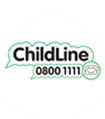Key Stage 5 PSHE Curriculum
“The only person you are destined to become is the person you decide to be.” Ralph Waldo Emerson
The Key Stage 5 PSHE programme aims to develop the knowledge, skills and attributes that our students need to manage their lives, now and in the future. These skills and attributes help our students to stay healthy, safe and prepare them for life and work in modern Britain.
The intent of our PSHE curriculum is to deliver a curriculum which ensures that each of our students will understand more about how to play a positive and successful role within our society. Our aim is to support students’ spiritual, moral, cultural, mental and physical development, prepare and equip them for the opportunities, responsibilities and experiences of life. Our aim is to provide students with a knowledge of their world, locally, nationally and globally and give them confidence to tackle many of the moral, social and cultural issues that they face as they grow up. We aim to provide our students with opportunities for them to learn about rights and responsibilities and appreciate what it means to be a member of a diverse society.
Our Key Aims
- To promote outstanding personal development so that students become well-educated and well-rounded young adults.
- To promote SMSC development of students and prepare them for the opportunities, responsibilities and experiences of later life.
- To promote good behaviour and positive character traits
- To foster good mental wellbeing in students so that they can fulfil their full potential at school and are well-prepared for life.
- The programme follows the Journey of Life Programme which has been adapted to reflect the focus of the whole school programme. The programme is supplemented with visitors and experts from outside agencies and organisations who deliver some of the aspects of the curriculum for example, Masculinity workshops, Drugs and LGBT related topics.
Our teaching approach places great emphasis upon the development of character, respect and tolerance. All the lessons will start with a central video which introduces key concepts of the lesson. Students will be given opportunities in lessons to reflect on the key themes and are encouraged to contribute to whole class discussions. There are dilemmas that promote or encourage critical thinking, reflection, problem-solving and decision-making.
Lesson 1 - Online Behaviour and its Ramifications
Students consider their usernames and email addresses and the impact they can have when applying for jobs. They learn about the impact of trolling and the legal consequences of trolling someone. They learn about cyberstalking, harassment and revenge porn. Students also consider fraud online and how to spot potentially fraudulent messages.
Lesson 2 - Responsible Sexual Activity
Students learn about sexual consent and what constitutes consent. They also consider different forms of contraception and the importance of regular sexual health check-ups at GUM clinics if they are sexually active with multiple partners.
Lesson 3 - Drug Use
Students build on what they know about drugs and the difference in legal penalties for possession and supply. Students also learn about the more common drugs that they might encounter when they go out drinking with their friends or when they go to university.
Lesson 4 - Sustainable Living
Students learn about the impact that single use plastic is having on the planet and they consider what actions they can take to minimise the amount of plastic waste they produce.
Lesson 5 - LGBT+ Issues
Students learn about some of the common challenges LGBT+ people face every day and think about how people may identify differently and the language they might use to describe their gender or sexual orientation.
Lesson 6 - Recognising Destructive Behaviours in Yourself and Others
Students learn about different forms of addiction including gambling, alcohol and drug addition. They also learn about the radicalisation and what support is available if they or someone they know are at risk of becoming radicalised.
Lesson 7 - Dealing with disability
Students learn about the rights of disabled people and what financial assistance is available. They also consider how to treat and talk to disabled people and how to be more mindful of common misconceptions surrounding disability.
Lesson 8 - Theories of religion
Students consider whether religion oppresses or inspires. What options are available including some of the lesser known faiths and belief systems.
Lesson 9 - The Process of Learning to Drive
Students learn about what’s required to pass their driving test including both the theory test and the practical driving test.
Lesson 10 - The True Cost of Learning to Drive
Students learn about the financial cost of learning to drive and calculate how much learning to drive is likely to cost them.
Lesson 11 - Identity & its importance in modern day
Students learn about a few different identities and consider what they can mean to an individual.
Lesson 12 - Fake News & Control of The Media
Students look at the impact of control and ownership of the media and the importance of fact checking sources of political information.
Lesson 13 - Responsible Borrowing
Students learn about the different ways they can borrow money including loans, overdrafts and mortgages. They then think about what would be considered responsible or irresponsible borrowing, and investigate what the repayment terms of any borrowing would likely be and what interest and fees they could be charged.
Lesson 14 - Employment Rights & Responsibilities
Students learn about their legal entitlements and rights as an employee.
Lesson 15 – Sleep
Students learn about the importance of sleep and the effect your circadian rhythm can haveon your wellbeing. They also learn about the different stages of sleep including REM sleep and non-REM sleep.
Lesson 16 - UK Politics
Students learn a brief history of UK politics, how parliament is formed and the difference between parliament and the government.
Lesson 17 - The distribution of wealth & power
Students consider the disproportionate wealth of the super rich compared to the majority of society, whether wealth should be inherited and whether pay is an indicator of hard work.
Tutor Period
The PSHE programme is supplemented by a regular and diverse range of presentations and discussions in AM tutor periods. Monday and Tuesday’s are designated 1:1 discussions to provide individual guidance to students -this followed suggestions from the student voice.
Year 12
Your body language may shape who you are
The importance of Year 12
The Discover Programme – University of Sheffield
Goal Setting (Netsixthform)
Growth Mindset Vs Fixed Mindset
Michelle Obama's Best Advice For Students | How To Succeed In Life
Why you should take a MOOC - Why these online courses can be so beneficial (Unifrog)
Revision 1: improving your understanding – video (Netsixthform)
Setting goals - Help with setting goals to get the most out of your study (University of Sheffield)
Thinking Skills Assessment (TSA): A short film about thinking (University of Cambridge)
A level Mindset - VESPA
What does 'wider reading' mean? (Unifrog) & Resources from Oxford University
Employability - what skills do you need?
Year 13
Thinking of University
Personal statements – Finding a formula (UCAS)
Goal Setting (Netsixthform)
What to include in your personal statement (Newsixthform)
How to fill in the UK UCAS form: a step-by-step guide - Advice on filling in the UCAS form (Unifrog)
Lesser-known university subjects (Unifrog)
Revision 1: improving your understanding – video (Netsixthform)
Setting goals - Help with setting goals to get the most out of your study (University of Sheffield)
The UCAS Application Process - 'You've applied; now what?' (UCAS)
A guide to Degree Apprenticeships (Unifrog)
Visiting Speakers
Chris Hemmings - Introducing the M-Path
Dr Aric Sigmund - Y12/13 Sex & Relationships
Kate Woolley - Violent Behaviour & Coercive Control in Relationships - SRE Policy
Kate Woolley - Stereotypes based on sex, gender, race, religion, sexual orientation or disability
Staff - History of LGBT
Dr Husemeyer – Medic Support
Helen O’Neil – Medic Support
Simon Bucknall – Oxbridge Support
Christine Stephenson - Medical Director of the molecular medicine laboratory at a hospital in Phoenix, Arizona
Bradley Evans – Solicitor VWV.







